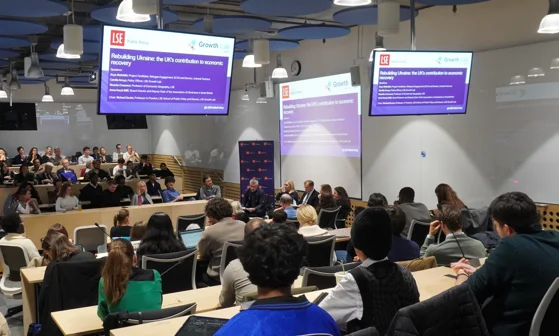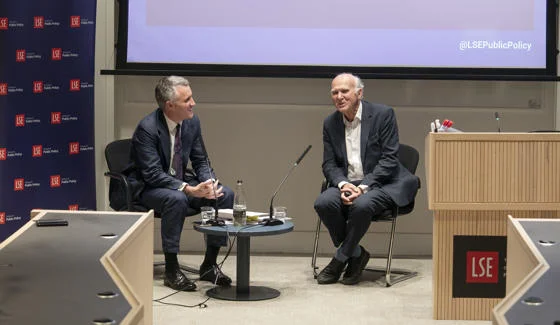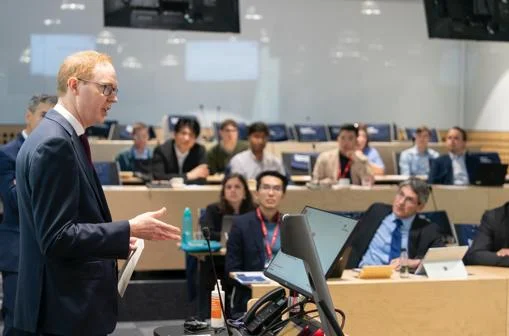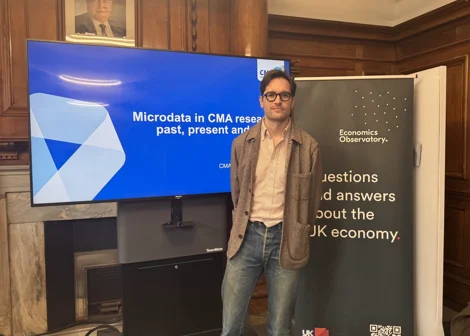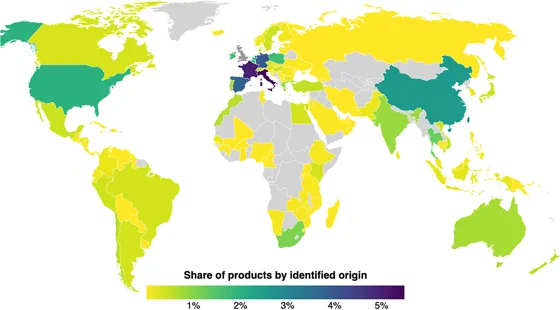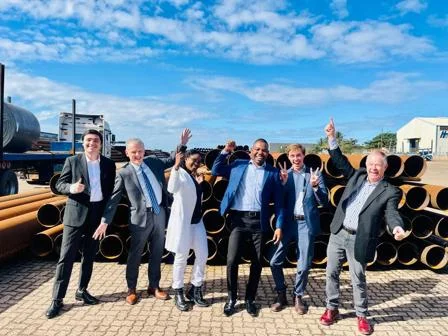Growth Lab
The LSE Growth Lab conducts policy research and organises impact projects. From the reconstruction of Ukraine to regulating UK finance, we work with practitioners to evaluate policies that drive prosperity. We collaborate closely with the Economics Observatory, and with Harvard’s Growth Lab.
Event: Economic Security in the age of AI
The Lab together with Georgetown University and supported by Accenture, is hosting Economic Security in the Age of AI, exploring how sovereign AI will shape economic power, national security, and global collaboration.

Understanding the impact of AI in the creative industries
The Growth Lab examines AI's impact on the creative industries. In a report supported by Netflix the team reviews history, theory and the latest research to provide a state of plan on the challenges and opportunities of the 2020s.




